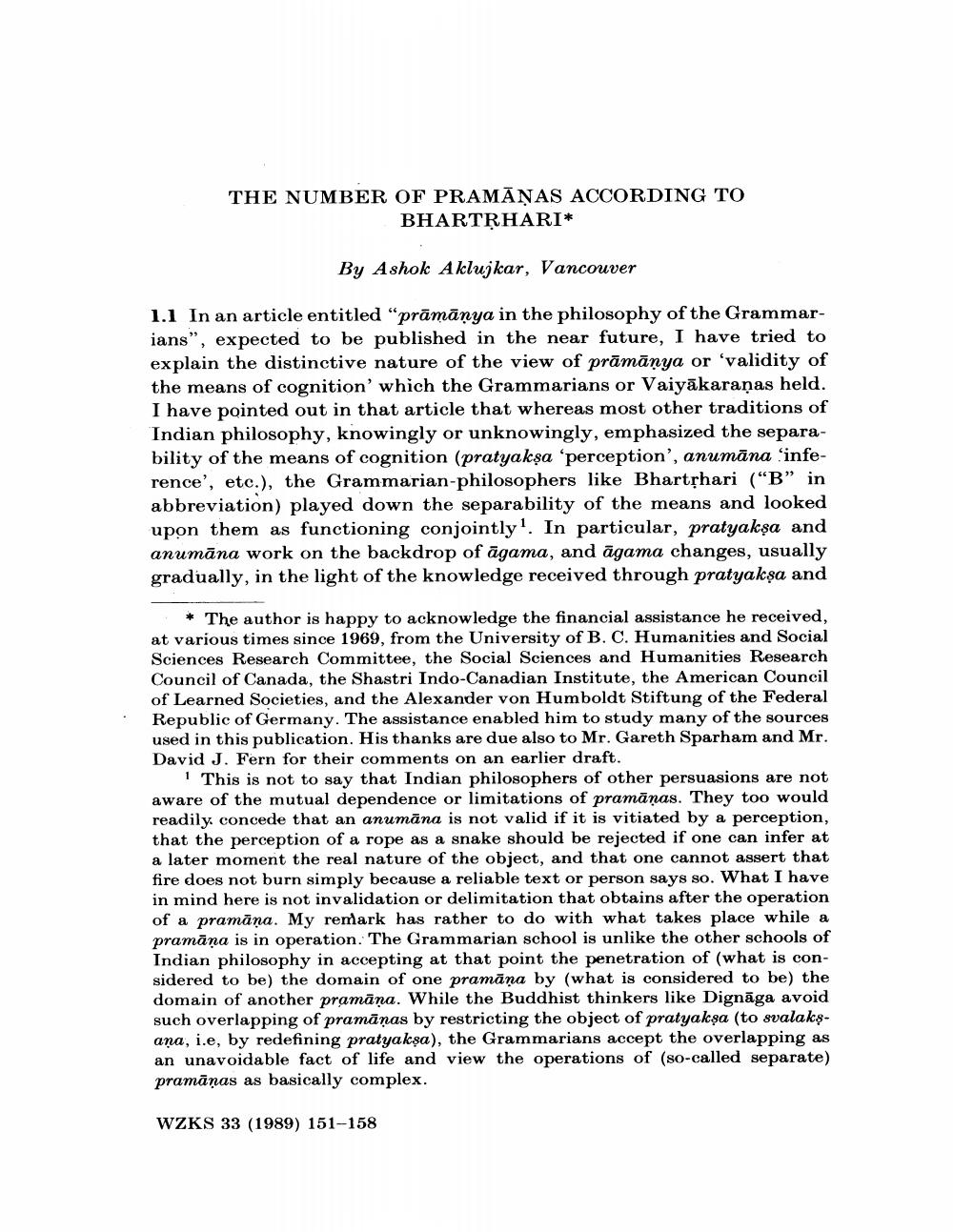Book Title: Number Of Pramanas According To Bhartrhari Author(s): Ashok Aklujkar Publisher: Ashok Aklujkar View full book textPage 1
________________ THE NUMBER OF PRAMĀŅAS ACCORDING TO BHARTRHARI* By Ashok Aklujkar, Vancouver 1.1 In an article entitled "prāmānya in the philosophy of the Grammarians", expected to be published in the near future, I have tried to explain the distinctive nature of the view of prāmānya or 'validity of the means of cognition' which the Grammarians or Vaiyākaraṇas held. I have pointed out in that article that whereas most other traditions of Indian philosophy, knowingly or unknowingly, emphasized the separability of the means of cognition (pratyakşa ‘perception', anumāna ‘inference', etc.), the Grammarian-philosophers like Bhartshari (“B” in abbreviation) played down the separability of the means and looked upon them as functioning conjointly. In particular, pratyakşa and anumāna work on the backdrop of agama, and agama changes, usually gradually, in the light of the knowledge received through pratyakşa and * The author is happy to acknowledge the financial assistance he received, at various times since 1969, from the University of B. C. Humanities and Social Sciences Research Committee, the Social Sciences and Humanities Research Council of Canada, the Shastri Indo-Canadian Institute, the American Council of Learned Societies, and the Alexander von Humboldt Stiftung of the Federal Republic of Germany. The assistance enabled him to study many of the sources used in this publication. His thanks are due also to Mr. Gareth Sparham and Mr. David J. Fern for their comments on an earlier draft. 1 This is not to say that Indian philosophers of other persuasions are not aware of the mutual dependence or limitations of pramānas. They too would readily, concede that an anumāna is not valid if it is vitiated by a perception, that the perception of a rope as a snake should be rejected if one can infer at a later moment the real nature of the object, and that one cannot assert that fire does not burn simply because a reliable text or person says so. What I have in mind here is not invalidation or delimitation that obtains after the operation of a pramāna. My remark has rather to do with what takes place while a pramāna is in operation. The Grammarian school is unlike the other schools of Indian philosophy in accepting at that point the penetration of what is considered to be) the domain of one pramāna by (what is considered to be the domain of another pramāna. While the Buddhist thinkers like Dignäga avoid such overlapping of pramānas by restricting the object of pratyaksa (to svalaksana, i.e, by redefining pratyaksa), the Grammarians accept the overlapping as an unavoidable fact of life and view the operations of (so-called separate) pramānas as basically complex. WZKS 33 (1989) 151-158Page Navigation
1 2 3 4 5 6 7 8
